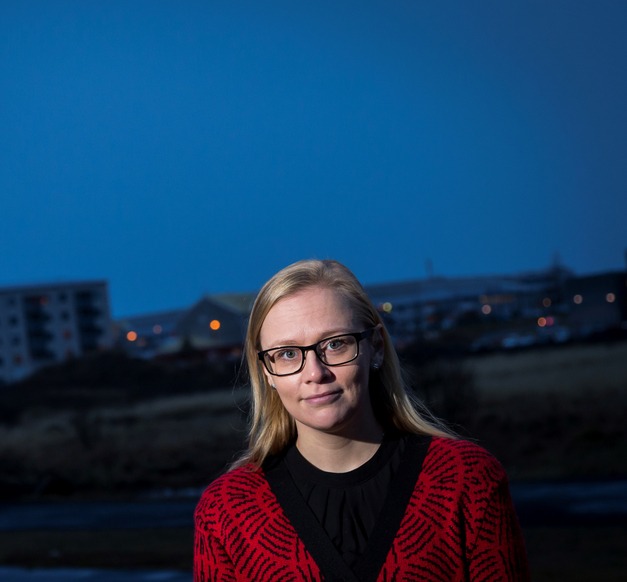Agnes Gísladóttir, former doctoral student at the Faculty of Medicine
According to a statistic by the National Commissioner of the Icelandic Police, reports of sexual violence have increased in Iceland. In 2015, 442 sexual offences were reported, compared to 419 the year before. Of these, 178 were cases of rape, in comparison to 129 for 2014. It is clear that sexual offences are common, and for this reason, it is extremely important to research the effects of such violence on its victims.
For some time now, research at the Centre of Public Health Sciences at the University of Iceland has aimed at determining if sexual violence survivors are at an increased risk of encountering complications during pregnancy and childbirth later in life.
Agnes Gísladóttir
Agnes says that the results of the study can be advisory and the basis for further research on how to improve services for sexual violence survivors, both during pregnancy and childbirth, but also at other times.

The project is lead by Agnes Gísladóttir, a former doctoral student at the Faculty of Medicine, who defended her thesis in September 2017. She points out that research has shown that traumatic experiences can have negative health consequences, and sexual violence is one of the most common traumata women are faced with.
"The World Health Organisation considers violence a global threat to human rights and public health. The organisation has, therefore, called for further studies on potential consequences for victims of violence. Possible effects on pregnancy and childbirth have not yet been thoroughly investigated, but in Iceland the prerequisites for doing so are ideal, thanks to available national databases. The basis for our study is the Icelandic birth register, which holds information about all births in the country since 1981. "
Agnes says there is evidence that women who have been exposed to sexual violence are more likely to smoke during pregnancy, "but smoking is considered one of the most preventable risk factors for adverse pregnancy and birth outcomes", Agnes adds. "The study also showed that there was an increased risk that births could be prolonged, and that interventions were needed during childbirth. Moreover, preliminary results indicate an increased risk of preterm birth. Overall, however, most women previously exposed to sexual violence had uncomplicated pregnancies and births."
Agnes says that the results of the study can be advisory and the basis for further research on how to improve services for sexual violence survivors, both during pregnancy and childbirth, but also at other times.
Supervisor: Unnur A. Valdimarsdóttir, Professor at the Faculty of Medicine.


